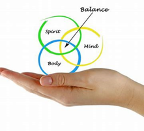by Charlene Dimas-Peinado
President and CEO, Wellnest
As a global issue, mental health knows no boundaries—geographic, socioeconomic, age, gender or ethnicity. Mental health challenges can impact anyone anywhere at some point.
Mental health is simply defined as that “state of well-being in which you realize your own abilities…you can cope with the normal stresses of life… work productively…and make a contribution to your community.”
Even as we emerge from the COVID-19 pandemic, we are all still grappling with a turbulent range of emotions caused by this unprecedented social, health, and economic crisis—from fear and loneliness to anger and helplessness. Our overwhelming concern for our health and safety, and that of our loved ones, has created a strain with serious implications for our mental health.
Prior to COVID-19, estimates were that some 450 million people worldwide suffered from a mental health condition at any given moment and 16 million U.S. adults had at least one major depressive episode in the previous year.
These needs skyrocketed with the pressures of COVID-19. The Centers for Disease Control and Prevention found that during the pandemic:
- 41% of US adults experienced COVID-19-related mental health issues.
- 75% of young adults (18 to 24) experienced a mental health issue.
- Women were 1.5 times more likely than men to report mental health as a challenge.
The World Health Organization has definitively linked mental health and economic productivity. The cost of treating depression, anxiety or trauma is enormous, with $2.5 trillion spent annually worldwide on mental health care (projected to reach $6 trillion by 2030) and $1 trillion per year lost in productivity due to depression and anxiety.

Boundaries between work and home have blurred even more, causing many to question their life choices. Research has consistently found that women and men leave their companies at comparable rates. However, due to COVID-19 stresses, including home schooling and lack of childcare, as many as two million women are now considering leaving the workforce. This is a tremendous potential loss to our economy and our creativity as a nation. Studies show a company’s profits and share performance can be close to 50% higher when women are well represented at executive-level positions.
There are reasons to be hopeful. This crisis has sparked a heightened social consciousness about health and wellness at work.
Even pre-COVID-19, research demonstrated that companies prioritizing health, safety, and wellness saw positive returns. A Harvard University study found that for every dollar spent on employee wellness, medical costs decrease, and absenteeism drops.
How do we build on this awareness and give mental health the equal standing it deserves alongside physical health?
Start by knowing the warning signs. They include:
- Depression, anxiety, irritability
- Poor concentration, appetite, sleep health
- Isolation, withdrawal
- Feelings of hopelessness and suicidal thoughts/behaviors
- Excessive use of alcohol or drugs
Reach out for help from health care providers and mental health experts and encourage others to do so. Self-care practices like meditation, therapy, exercise, nutrition, outdoor activities and folk or spiritual healing also can help people empower and recharge themselves. Others find renewal in connecting safely with friends and family, volunteering in their community and simply taking a break from our tech-overloaded world.
If you are a business owner, leader, or manager, help to create a psychologically safe culture that supports self-care and open discussion of emotional health. Normalizing fears and concerns brings compassion and inclusivity into the workplace. Flexible work hours for employees, including young parents, acknowledge the difficulty of this balancing act.
Good mental health benefits our relationships at home and at work. As we grow more resilient, we can better cope with the challenge’s life throws at us—even an unprecedented global pandemic.
Wellnest, founded in 1924, is a nationally acclaimed, leading provider of emotional health and wellness services to the children, young adults, families, and communities that we serve in Greater Los Angeles. You can find links to helpful resources on our website at www.Wellnestla.org/resources.




